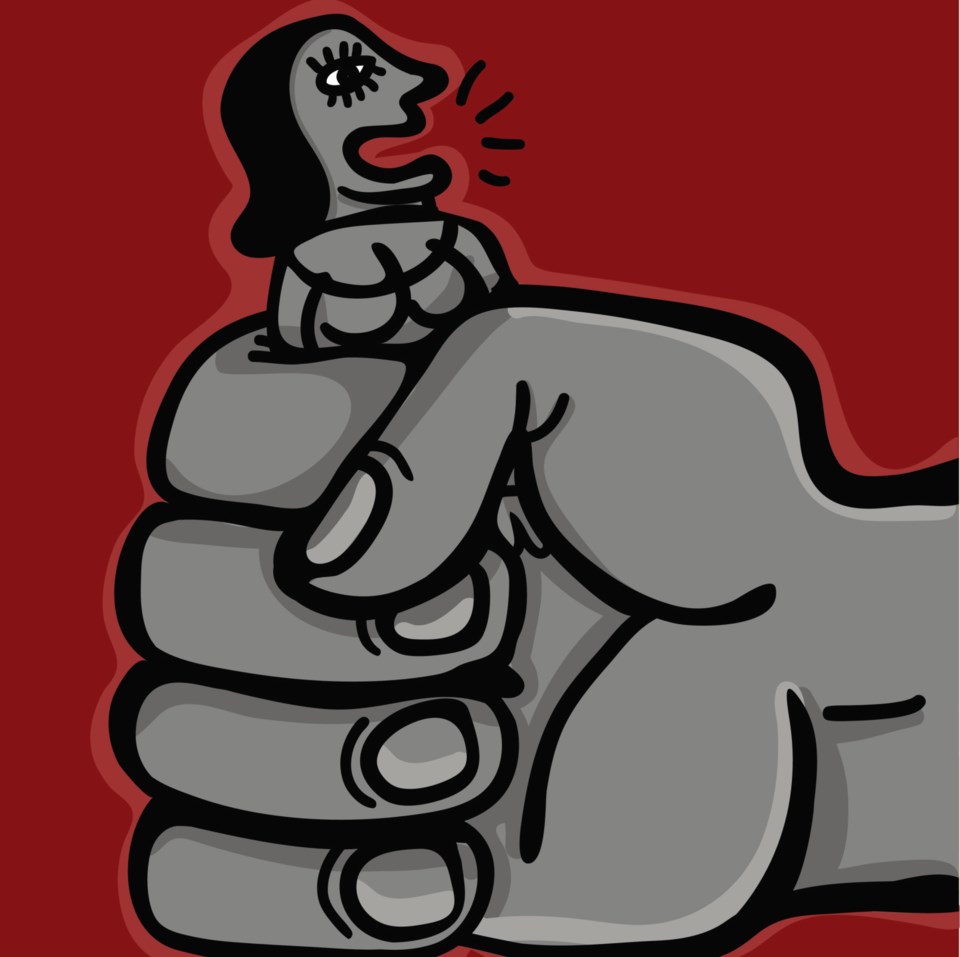Every woman has that story. You know what I'm talking about. The story of when some guy, whether it was your friend, a distant relative or total stranger, did something sexual to you that you did not consent to. Depending on your age, the situation and the amount of alcohol or drugs involved, it could play out differently to the existential challenge of your confidence; your understanding of your sexual self. I'm talking the "non-rape story".
Rape has always been painted into girl's heads as a thing that happens to you at the hands of a stranger: it's violent, significant and awful. In reality, rape it isn't always like that story we're all told, but sometimes it is. Regardless, rape happens in many forms. Rape, although defined by the heterosexual definition of intercourse, doesn't always play out that way.
The umbrella of sexual assault is big. It's a motherfucking cloud because the effect of being inappropriately fondled by your older cousin when you are 9 can be as defining as being sodomized, without consent, by a kid at your high school prom after-party. In any situation, being forced into sex without willingness messes up your brain. And as women, we've all been in this situation at some point in our lives. That's just an unfortunate truth of being nature's punching bag.
I love being a woman. I love challenging all the shit that comes with it and I never want to play the victim even in situations when I would be considered just that. Fuck being the victim. When Cherie Currie was kidnapped, raped for days and finally escaped from her crazed, psycho fan captor, she didn't call herself a victim. She talked about what happened and she confronted it head on. I understand this is not how we all react to our sexual abuse. But it's pretty courageous when some do because it inspires others not to keep it hidden in the back of their psyches.
Currently, sexual misconduct and rape, especially on university campuses, is being talked about in a revolutionary way. Girls who have been raped by their friends and fellow students aren't sweeping it under the rug, but, instead, talking about it. And talking loud, like features in The New Yorker – loud. When university officials and other figure heads do not respond to the abuse appropriately they take matters into their own hands. The shame of being a "victim" of rape is slowly being lifted with story telling, with forms of protest. The conversation is reaching outwards. It's making an effect. From Columbia University in New York to Thunder Bay, Ontario the conversation is happening.
But this is the thing: I do not blame men for the entitlement some may feel they have over women's bodies. I really do not. It's taught. It's woven into the fabric of our society. It's a result of not talking about this shit. It's a result of patriarchy. It's a result of not taking interest in the other side: how men's urges complicate the effected. It's about not respecting the female position or never been given the opportunity to care.
I would say 75% of my sexual experiences with men have been positive. And I think I'm lucky for that. In a way, that's slightly sad. But I have found love and confidence with men. I've also been taken advantage of and assaulted, but I learned from that and I own that. Unfortunately, this is just a part of being born a girl and growing up a woman.
In her book "Promiscuities: A Struggle For Womanhood" Naomi Wolf wrote:
"When we discovered that, if we went with boys, space would open up for us, we found, to our surprise, that we needed boys. And yet boys were part of the danger. Thus, our balance of power with boys was thrown off. This inequity regarding moving fast into the world was the first lesson I had about the inequities between men and women: We needed them more than they needed us. We were more scared physically of them than they were of us."
There's always going to be the imbalance and that's okay. What's not okay is feeling shame because of it. Internalizing your so-called "non-rape" story instead of talking about it to whoever you feel like sharing with. We've all been there and the more we talk the more others have to listen. The more it creeps all the way into political policy.
Last week, the state of California implemented a bill "Yes Means Yes" replacing the old "No Means No" rape rule. Sometimes when you make big, loud steps people listen and maybe it's hard to talk that loudly, but in the end, it's about the effect it causes.
Follow Mish Way on Twitter @myszkaway



